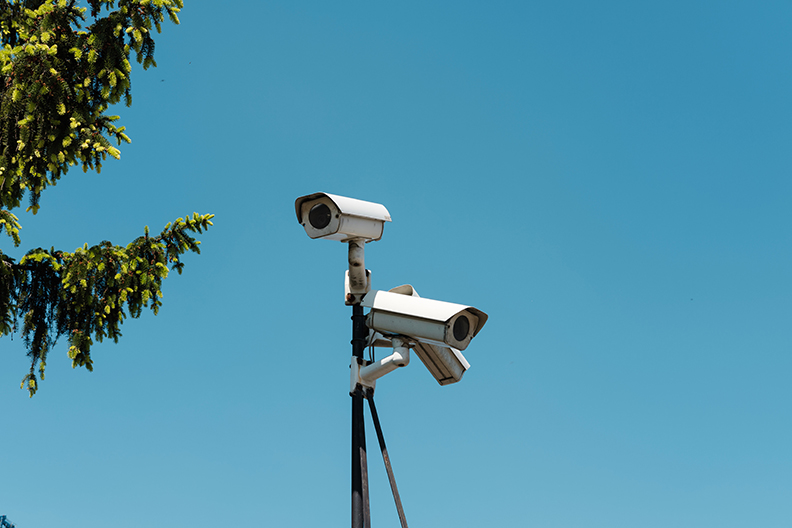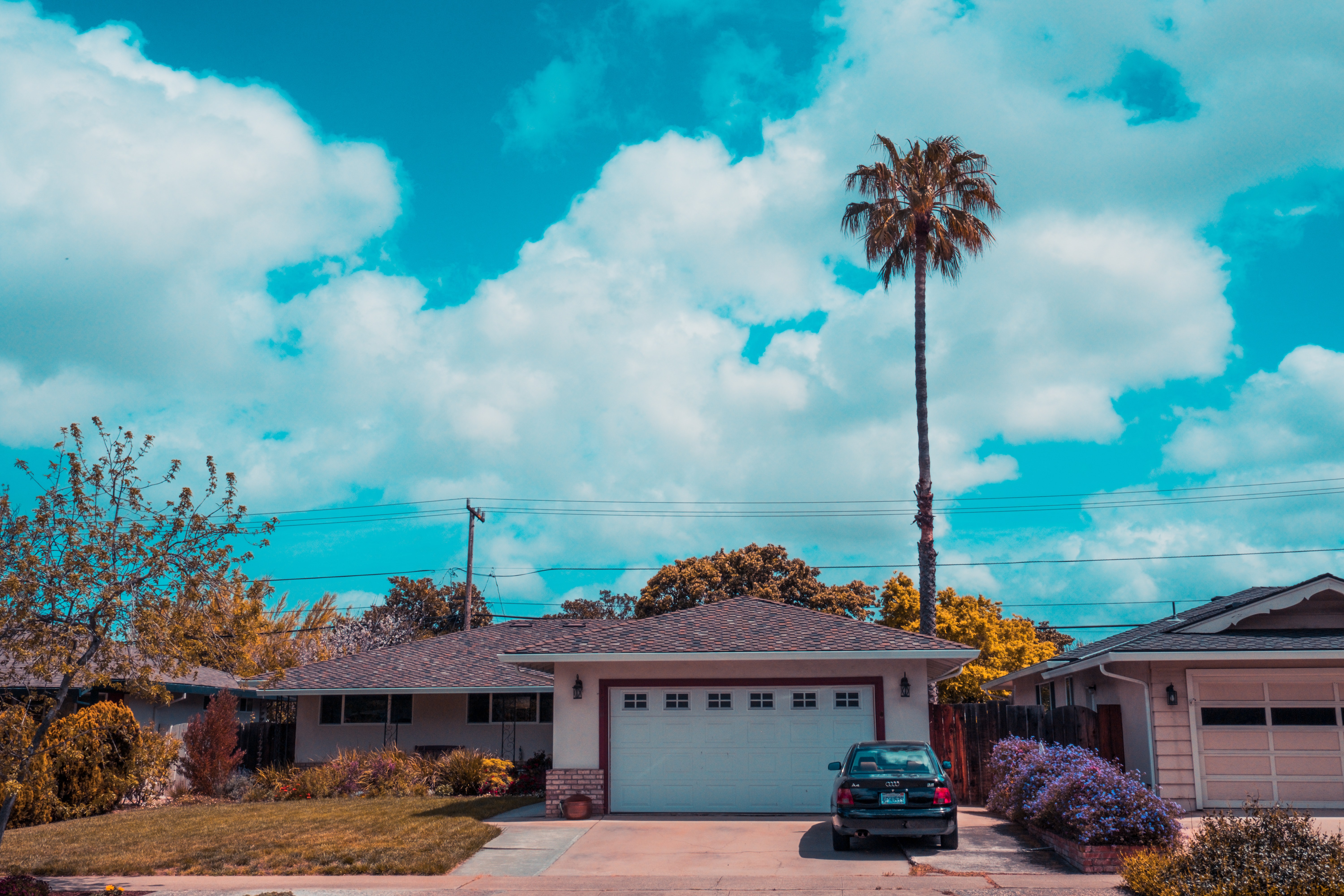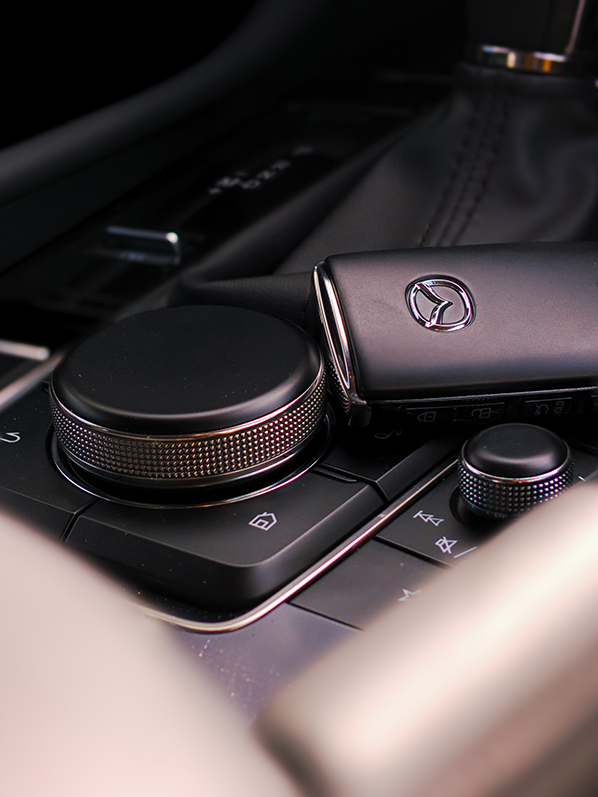Privacy Guide: Best Practices with Home Security Cameras
Link Copied
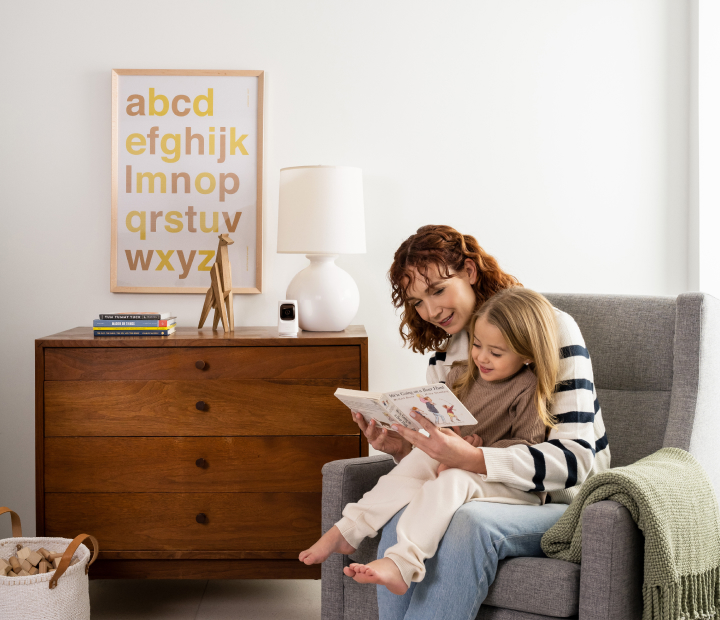
If you’re worried about using security cameras at your home–don’t be. While there have been a few incidents of hacking reported over the years, that number is extremely low, and security measures are getting better and better all the time.
Plus, there are plenty of ways to protect yourself to make sure you’re getting the most out of your security camera while not compromising privacy. In this article, we’ll look at best practices with home security cameras so you can best maintain your privacy and protect your family at the same time.
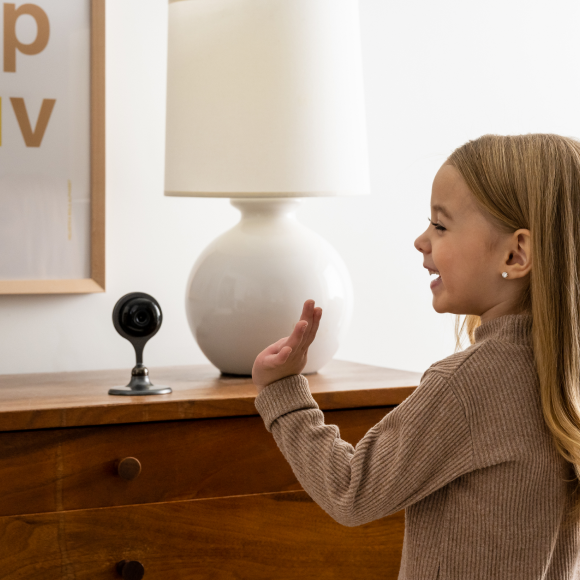
Why Get a Security Camera?
Security cameras have become a must-have item, especially since they’ve increased in quality and decreased in price. Why have a security camera? Here are a few reasons:
- Deter criminals from breaking in
- Screen visitors
- Keep porch pirates at bay
- Discount on homeowners insurance
- Monitor property while you’re away
- Give you peace of mind
Especially when installed as part of a whole home security system, a home security camera can help you make sure all your bases are covered.
RELATED: Home Security Survey: How Comfortable Are You with Security Cameras?
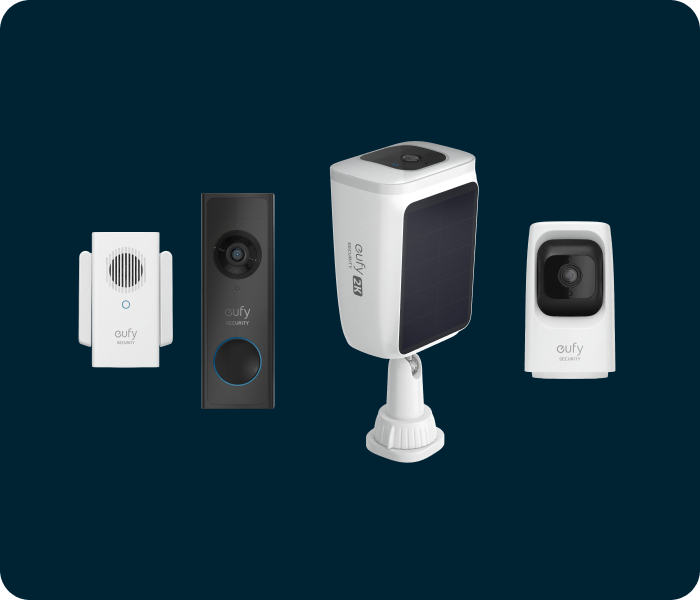
What to Look for in a Security Camera
In an article from the Washington Post, “The dos and don’ts of using home security cameras that see everything,” it starts with what people should look for in a security camera. Because there are so many on the market now, customers must spend time looking at all the options.There are three main considerations when looking for a security camera.
1. Brand
Companies with the backing, the longevity, the commitment to safety and security will be more well known. Avoid any fly-by-night brands that are looking to make a quick buck–if there are issues, they won’t be around to fix them. Security cameras made by companies that are more well known are the way to go. Arlo, Ring, Wyze, Next, and Eufy (Cove loves Eufy!) are among the industry leaders.
2. Type
For home security, you’re going to be looking at three major types: outdoor cameras, indoor cameras, and doorbell cameras. What you decide to use will depend on your security needs. Doorbell cameras are great for screening visitors and deterring porch pirates, outdoor cameras keep an eye on the perimeter of your property and act as a first defense and deterrent for trespassers, and indoor cameras can help you keep tabs on what’s going on at home when you’re at work and even communicate with who is at home.
3. Specs
The nitty-gritty tech details of the camera itself make a difference. Things like resolution so you can see what’s on the video, night vision so you can see images even in the dark, motion-sensor so only footage with motion is recorded, power source (plug in, solar, battery), and more. We recommend comparing different cameras to best understand all their features and choosing the best one at your price point.
Also check cameras for privacy settings. For example, Cove’s indoor camera has a privacy setting so you can easily control when footage can be seen.
Tip: Having a whole home security system takes advantage of all types of security cameras. Having an outdoor, indoor, and doorbell camera helps you feel safe as every point of home security is covered. Each camera has a different function, and using them as a system allows them to work together for your benefit.
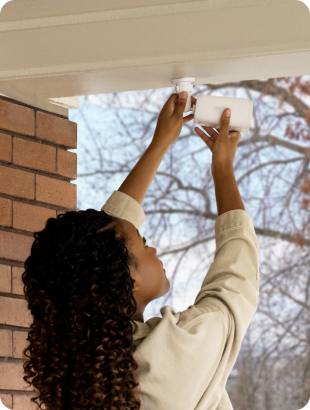
Strategically Placing Your Security Cameras
If privacy is on your mind but you still want to protect your home with security cameras, placement is paramount. Strategically placing your security cameras in the right places will help you accomplish both privacy and security.
For doorbell cameras, there’s really only one option: install them at your front door. Since it faces outward, you shouldn’t have to worry too much about privacy issues.
Outdoor cameras require a little more thought when it comes to placement. While you may not be worried about your own privacy when installing an outdoor camera, it’s important to think about the privacy of your neighbors. Avoid placing your outdoor camera where it would peer into a neighbor’s bedroom, backyard, or other private space. Outdoor cameras are great for additional angles on your entryway, as well as above the garage, backyard, or anywhere someone might try to approach your home.
Indoor cameras can be more tricky to avoid privacy issues. Cove recommends placing indoor cameras in main living spaces, such as in a living room, entryway, kitchen, etc. You can certainly place an indoor camera in a bedroom if you wish, as Cove’s indoor camera has a privacy mode so it won’t capture video when you don’t want it to.
Tip: Regularly review your footage and delete any you don’t want to keep. That way, you don’t have to worry about someone else getting hold of it.
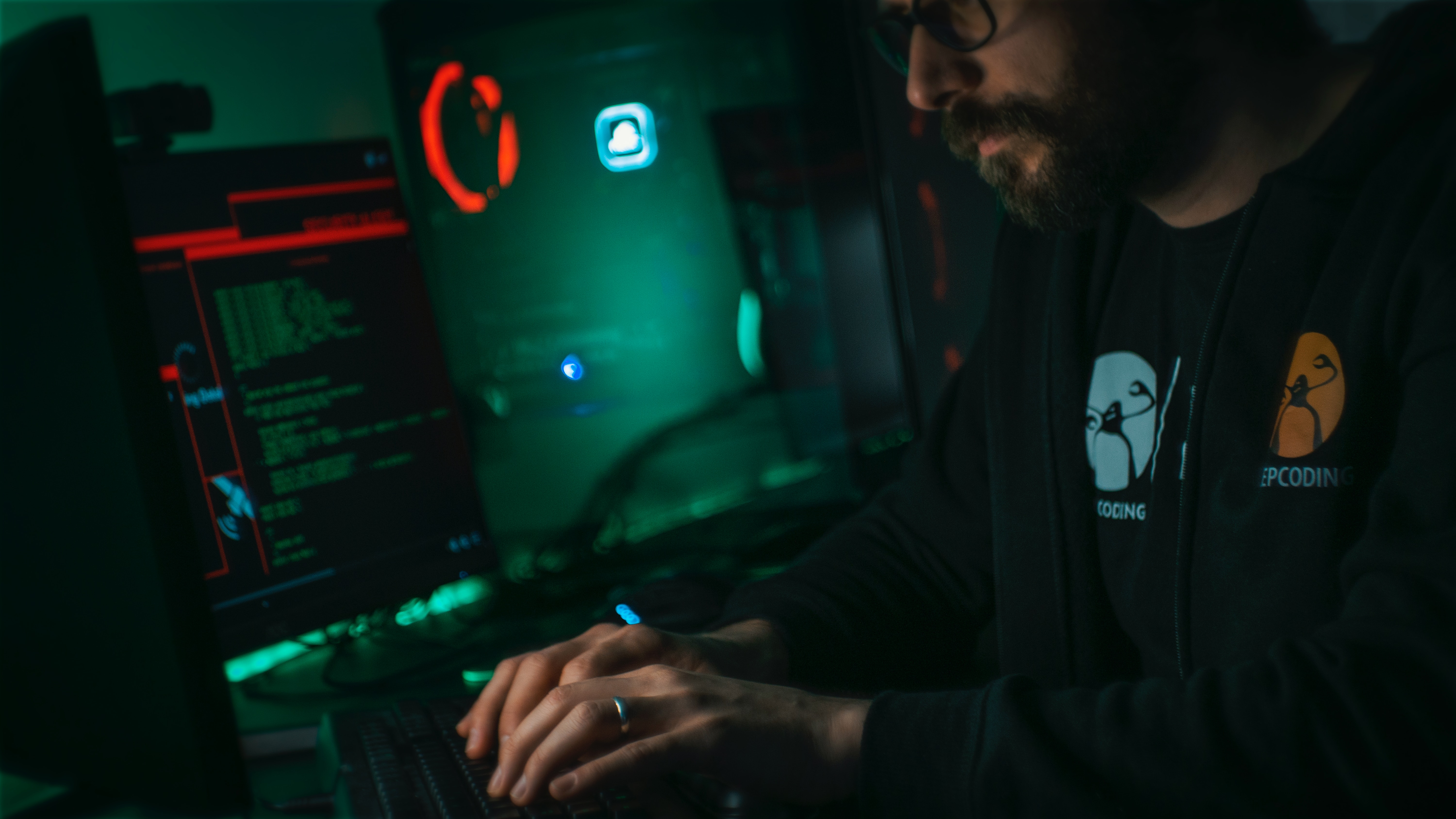
Managing Your Video Storage Location
Generally speaking, you have two options when looking at video storage, and each one has pros and cons when it comes to privacy. Option 1: cloud storage, and option 2: MicroSD card. Cloud storage is easy to access, but has the potential of being hacked. Local storage on a card is less accessible to anyone besides you.
Since each company and each camera is different, be sure to check the specifics so you get what you want. Here’s what’s available from Cove’s camera options.
Doorbell camera: All video can be viewed and downloaded from the Eufy app. (Camera integration with the Cove Connect app is in progress.) All clips are stored on the Wi-Fi chime, not in the cloud, and they must be downloaded in order to permanently save them.
Outdoor camera: The Eufy outdoor camera stores video locally on the camera. This video can then be downloaded through the Eufy app and saved to your phone. (Camera integration with the Cove Connect app is in progress.) The camera’s local storage supports up to 8 GB or about 2 months of storage at a time, depending on the amount of activity captured by the camera.
Indoor camera: Your video recordings can be stored locally on a microSD card of up to 128 GB, or via Eufy’s paid cloud storage service. You can access your recordings through the Eufy Security app. (Camera integration with the Cove Connect app is in progress.) Once the microSD card is full, it will begin recording over the oldest footage. Make sure to download and save any videos you want to keep forever from your microSD card to your computer or phone.
Tip: Since most security cameras these days require Wi-Fi to operate, ensuring the security of your home network is vital. Always choose a unique password and change as needed. Always turn on a multi-factor authentication option so if you’re resetting your password or logging onto a new device, it’ll double check that you are who you say you are. Some users also opt to use a separate Wi-Fi network for their security devices.
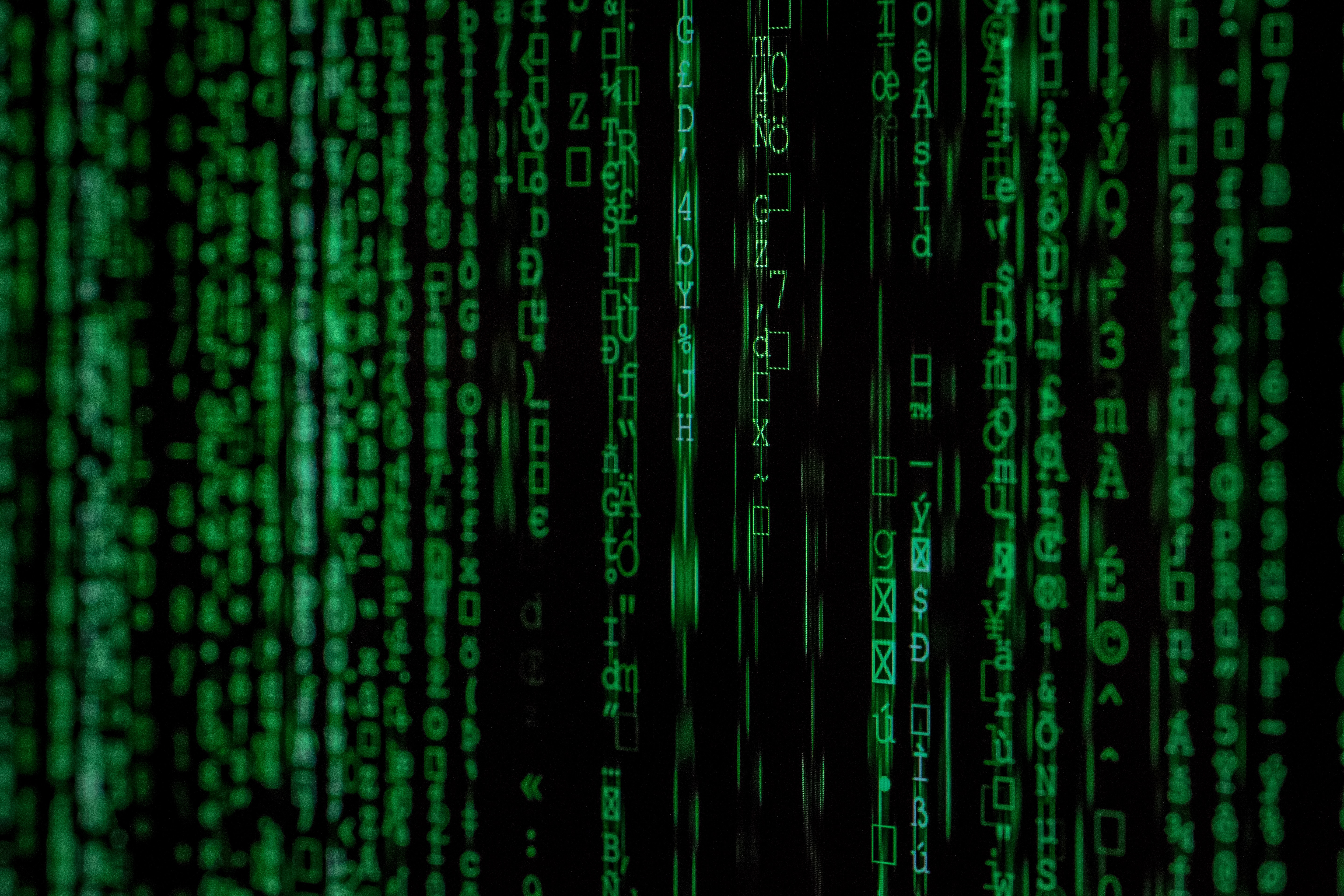
Know Your Video Rights
If law enforcement ever wants access to your home security footage, it’s important to know your rights. If the video shows evidence that could help them convict a criminal, they will obviously want access to that video. According to the law, you do not have to hand over any video footage without a warrant. Of course, you are also welcome to turn over footage to police if they ask and you’re okay giving it to them.
To keep your other footage safe, be sure to only hand over the relevant files. Don’t give them your camera or access to your account that stores your footage. Simply download the file and email it to the officer.
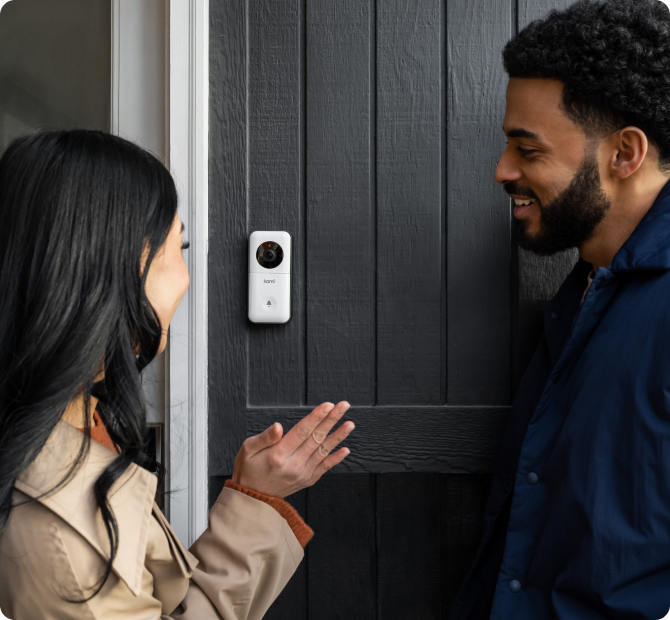
Privacy is important. If video of you or your family gets into the wrong hands, you run the risk of it being shared or even posted online. At the same time, you also want to keep your home and family safe from criminals. To get the best of both worlds, follow this guide to choosing, installing, and using a home security camera. Pay special attention to how the video footage is transferred and stored, and know your rights. By following these tips, you can ensure your privacy and security.
Ready to get started?
Take this short quiz to build your customized system today!
Takes less than a minute
